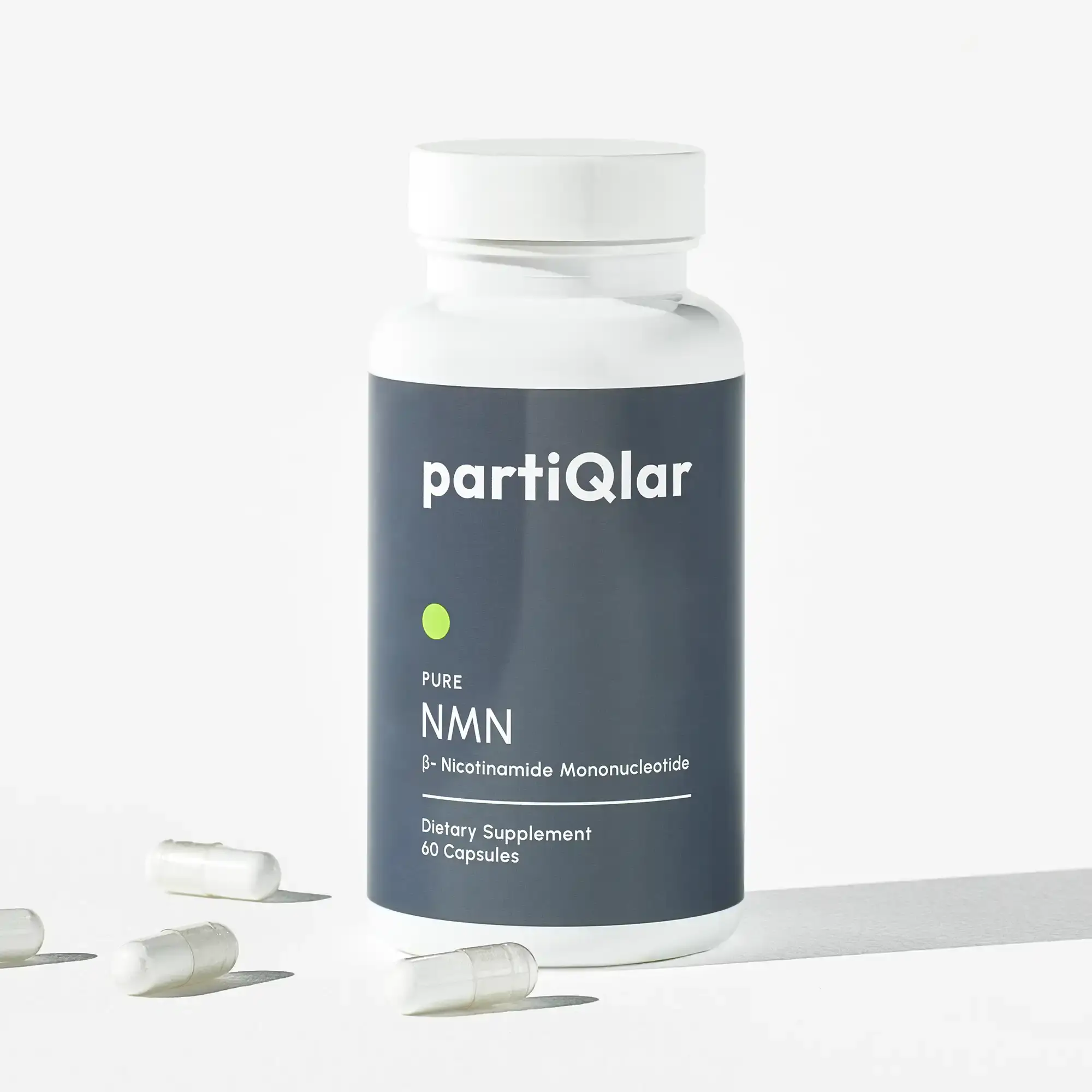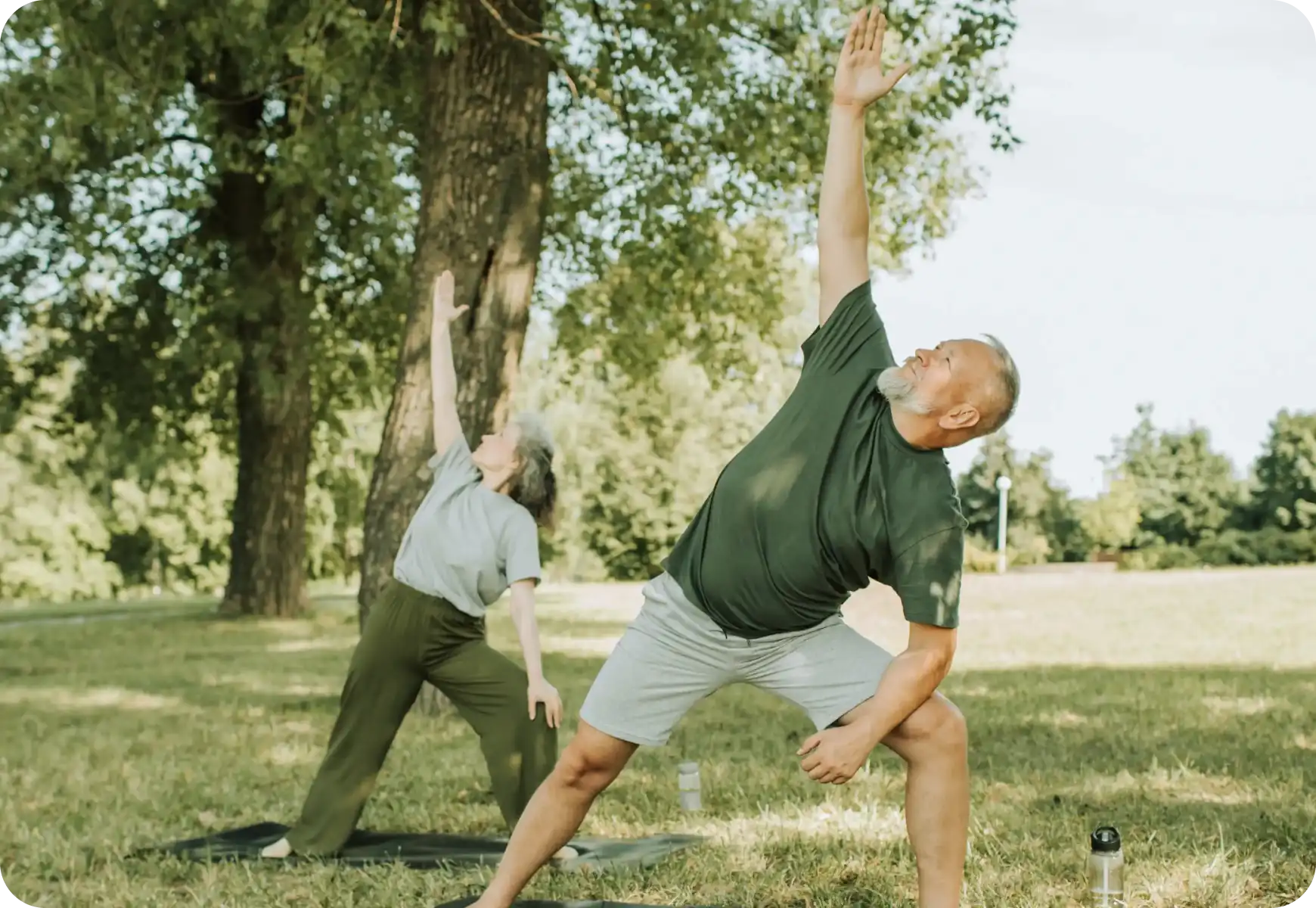Discover the best NMN supplements to support anti-aging and longevity with our top 10 picks.
Anti-Aging Benefits of Fasting: Do They Live Up to the Hype?
- Nutrition
- October 17, 2024
- Alex L. partiQlar

Related Product
Does fasting increase your lifespan, or is it another pretty story being fed to us by marketers and influencers? Let’s find out the true benefits of fasting for the human body and whether they have anything to do with aging.
The search for eternal youth has occupied the human imagination since ancient times. Today, nothing has changed. Modern marketing specialists and influencers regularly come up with a new superfood, diet, or health practice that promises to reverse the signs of aging.
One of the most recent anti-aging trends is fasting. Multiple studies have confirmed the link between longevity and abstinence from food for certain periods of time. But how true to life is it? Let’s figure it out once and for all.
What Is Fasting?
Fasting is a voluntary refusal of food and, sometimes, water. There are three main types of fasting:
- Alternate-day fasting. It is an intermittent fasting practice of scheduling one day of no food intake followed by a day without food restrictions.
- Time-restricted fasting. This is a diet plan in which eating is allowed only in a defined time window — for example, for 4/5/8 consecutive hours in a day. For the rest of the time, you should refrain from food, limiting yourself to drinking — water or (in mild versions of fasting) vegetable and fruit juices.
- Modified fasting. This technique usually involves eating regularly five days a week and fasting for two non-consecutive days a week.
The most popular kind nowadays is time-restricted fasting, aka intermittent fasting, when you can eat within an eight-hour window and fast for the other 16 hours. But is there actual scientific evidence that food restriction impacts the aging process in any way.

Research on Anti-Aging Effects of Fasting
Over the years, there have been multiple attempts to confirm the connection between fasting and delaying the signs of aging.
In their study in rodents, scientists at Georgia State University, USA, established a new role for a molecule produced during fasting. The ketone molecule can influence the vascular system, keeping the blood vessels “youthful and elastic.” This could reduce the risk of heart disease, cancer, Alzheimer’s, and other age-associated ailments.
Biologists from the Massachusetts Institute of Technology discovered that fasting promotes stem cell regeneration in the intestine, which may suffer significant damage as we age. The scientists discovered that after a 24-hour fast, cells in mice began to break down fatty acids instead of glucose. This process stimulated the appearance of new cells, and their rejuvenation capacity doubled.
When it comes to humans, scientists have managed to confirm that intermittent fasting may lower the risk of heart diseases, reduce inflammation, and assist in managing diabetes. However, the results of this study are yet to be verified by further larger, randomized research, which makes them questionable in terms of relation to all humans.
Effective on Rodents, But What About Humans?
While all major discoveries have first been studied on mice, worms, and other organisms, the above data isn’t enough to be rightfully applied to humans.
Studying human aging is challenging due to the difficulty of monitoring people over long periods of time — as opposed to mice. For this reason, most of today’s data on the anti-aging effects of fasting is very limited and low-quality.
Not Anti-Aging But Still Pretty Good for You
So, fasting isn’t a magic wand that can make you young forever. However, periodical food limitation has a number of proven benefits, which improve your overall chances for a long and healthy life:
- Decreased insulin levels. As a rule, the body utilizes glucose in the blood and liver as there is no other source of energy. Consequently, when you avoid calorie intake, the pancreas produces less insulin to absorb glucose.
- Immunity boost. Fasting allows our immune system to create entirely new white blood cells, improving the body’s ability to fight disease.
- Loss of excess weight. During fasting, your calorie intake is insufficient. This initiates lipolysis — the process of breaking down fats in body tissue.
- Decreased cholesterol. Fasting can lower your levels of total cholesterol, triglyceride, and LDL cholesterol, which are known to be linked to a higher risk of cardiovascular diseases.
- Reduced inflammation. Decreased calorie intake, especially in the evenings, may reduce inflammation in the body, lowering your risks of developing certain types of cancer and other inflammation-related illnesses.
So even if not for its alleged anti-aging effect, it may still be worth giving fasting a try.
Bottom Line
So can fasting help slow down the process of aging and increase lifespan? It might. Research is promising, but it’s too early to make loud declarations.
And while occasional food restriction has some serious health benefits, consulting your doctor is paramount before turning to some newfangled anti-aging diet. Certain health conditions may not be compatible with prolonged calorie deficits, so a well-weighted approach is always the right way to go.
Explore Products
Related Articles
The decline in physical activity often correlates with aging. This article examines whether aging leads to decreased activity or if reduced movement accelerates aging. It emphasizes the importance of maintaining regular exercise to promote longevity and mitigate aging effects.
Could cold water therapy be the key to slowing down aging? Dive into the science behind ice baths and their potential benefits for longevity, cellular health, and recovery. Discover whether this chilling trend can truly enhance your well-being and vitality!



